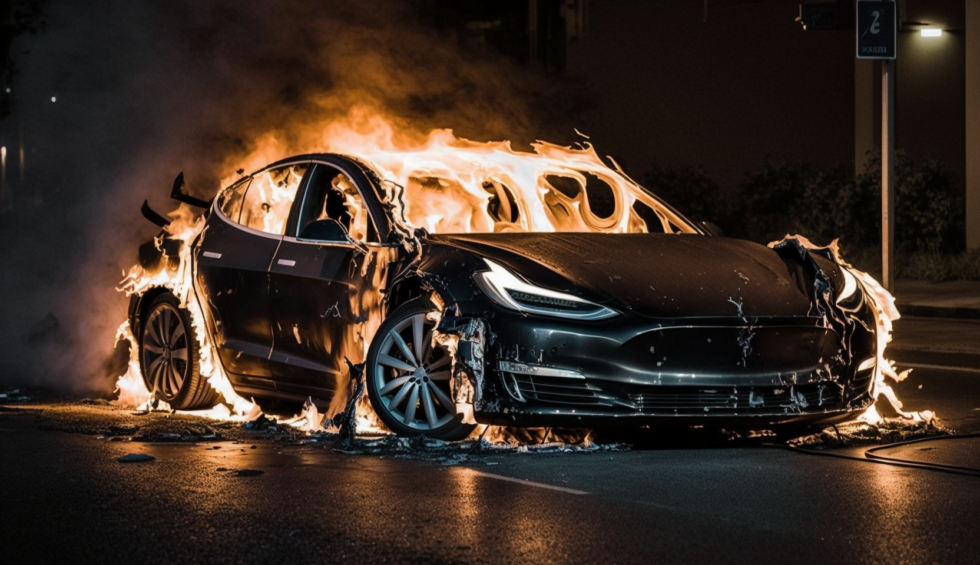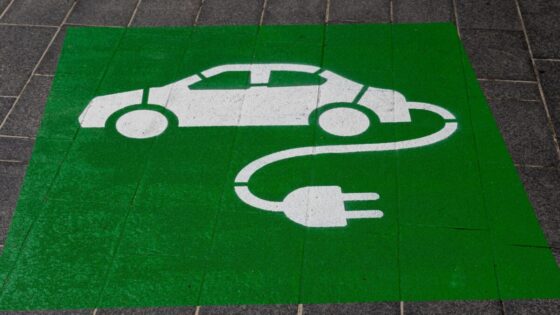Clearing the Air: Debunking Misconceptions About Electric Vehicle Fires

The Reality of EV Fires: Likelihood and Causes
One of the most significant misconceptions about electric vehicles is that they are more prone to fires than other vehicles. However, studies have shown that the likelihood of an EV catching fire is significantly lower than that of a gasoline-powered car. According to the National Fire Protection Association (NFPA), the rate of vehicle fires for gasoline-powered cars is approximately one fire for every 19 million miles driven, while the rate for EVs is one fire for every 205 million miles driven.
While the likelihood of an EV fire is low, it is still essential to understand the common causes. One of the primary causes of EV fires is lithium-ion battery defects. Lithium-ion batteries are used to power the electric motors in EVs and can cause a fire if they are damaged or overheated. Another common cause is EV charging incidents, such as when a charging station malfunctions or when an EV is charged with an incompatible charger. However, automakers and charging station providers are taking steps to address these issues and improve the safety of EV charging.
Lithium-ion Batteries and Fire Risks
Lithium-ion batteries have been a cause for concern when it comes to EV safety due to their potential to cause fires. However, it is essential to understand that the likelihood of a battery pack fire is low. Battery pack fires occur when there is thermal runaway, which is a rare event that can be prevented through proper battery design and safety measures.
Automakers have implemented several safety features in EV batteries, such as cooling systems and redundant safety measures to prevent thermal runaway. Furthermore, ongoing research and development in battery technology aim to improve battery safety and reduce the likelihood of battery fires.
Debunking Other Myths About EV Fires
There are several other misconceptions about EV fires that are not based on factual information. For example, some people believe that EV fires cannot be extinguished. However, this is not true, as EV fires can be extinguished using the same methods as other car fires. Additionally, some people believe that EVs emit toxic fumes in the event of a fire, but this is also false, as EVs do not contain the same hazardous materials as gasoline-powered cars.
It is essential to address these myths and provide factual information to alleviate concerns about EV safety. While there is always some risk associated with any vehicle, the benefits of owning an electric car far outweigh the risks.
The Pros and Cons of Electric Cars
While safety is an important consideration when choosing a vehicle, it is just one factor to take into account. Electric cars offer numerous benefits that make them an attractive option for many drivers. One of the primary advantages of owning an electric car is their lower emissions. Unlike gasoline-powered vehicles, electric cars produce zero emissions while driving, which can significantly reduce air pollution and greenhouse gas emissions. Additionally, electric cars have lower maintenance costs, as they have fewer moving parts and don’t require regular oil changes.
However, there are some drawbacks to owning an electric car that should also be considered. One of the most significant drawbacks is limited driving range. While newer electric cars can travel over 200 miles on a single charge, this is still significantly less than the range of most gasoline-powered vehicles. Additionally, electric cars can have a higher upfront cost compared to gasoline cars due to the cost of the battery technology.
Benefits of Electric Cars:
- Lower emissions, producing zero emissions while driving
- Lower maintenance costs due to fewer moving parts and no need for oil changes
Drawbacks of Electric Cars:
- Limited driving range, typically less than gasoline-powered vehicles
- Higher upfront cost due to the cost of battery technology
Electric Car Safety:
- Subject to the same safety standards as gasoline-powered vehicles
- Equipped with numerous safety features such as airbags, anti-lock brakes, and traction control
- No evidence to suggest that they are more dangerous than gasoline cars
Despite these drawbacks, the safety of electric cars should not be a significant concern for potential buyers. In fact, electric vehicles are subject to the same safety standards as gasoline-powered vehicles, and there is no evidence to suggest that they are more dangerous. Moreover, electric cars come equipped with numerous safety features such as airbags, anti-lock brakes, and traction control, just like gasoline cars.
Safety Studies and Innovations in EV Technology
Automakers and regulators are continually working to improve the safety of electric cars. Numerous safety studies have been conducted on electric vehicles, including crash tests and fire safety tests. These studies have demonstrated that electric vehicles are just as safe, if not safer, than gasoline-powered vehicles.
In addition to safety studies, there have also been several safety innovations in EV technology. For example, many electric cars are equipped with fire suppression systems, which can quickly extinguish any fires that may occur. Battery monitoring systems are also becoming more advanced, allowing for early detection of potential battery issues and preventing them from escalating into more serious problems.
The commitment of automakers and regulators to EV safety is evident in their efforts to improve battery technology and implement new safety features. As electric cars become more widespread, safety will continue to be a top priority, and innovations will continue to be made to ensure that electric vehicles remain a safe and viable transportation option for everyone.
FAQ
Here are some frequently asked questions about electric vehicle fires:
No, electric cars are not more prone to fires than gasoline-powered vehicles. In fact, studies have shown that electric vehicles have a lower risk of fire compared to gasoline cars.
Yes, electric car fires can be extinguished just like any other vehicle fire. Fire suppression systems are standard equipment in many electric cars and can quickly extinguish any fires that may occur.
No, electric cars do not emit toxic fumes when on fire. Lithium-ion batteries used in electric cars do not contain any toxic chemicals that could be released in a fire.



